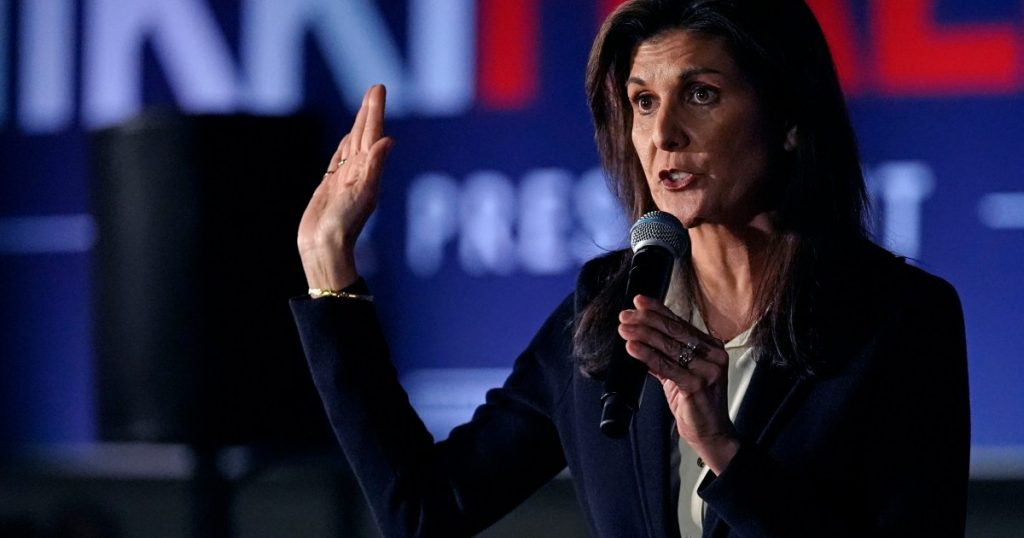Add Nikki Haley to the List of Public Figures Who Have Been “Swatted”
AP Photo/Charles Krupa
Fight disinformation: Sign up for the free Mother Jones Daily newsletter and follow the news that matters.Nikki Haley is the latest politician to have been “swatted”—a term used to describe a form of harassment in which a hoax call is made to emergency services to try to spur a SWAT team to show up at a person’s home. The incident occurred last month when a man called 911 and said he had shot a woman at Nikki Haley’s South Carolina home and was threatening to self-harm, according to Reuters, which first reported on the swatting.
Public records reviewed by the outlet showed that police said that they planned to open a “threat assessment” and were trying to trace the number that made the call. Haley’s office did not issue a statement about the incident.
In the past, the tactic was generally employed by extremely online people, often directed at extremely online targets, like Twitch streamers. The highest profile incidence took place in August 2022, when trans Twitch streamer Keffals was swatted likely by users of the transphobic internet forum Kiwi Farms.
Incidents of swatting politicians and government officials, however, have increased significantly over the last few months, generally following an uptick in an individual’s public visibility. Reuters reported that it had documented at least 27 cases of such swatting on politicians, elected officials, prosecutors, and judges including Democratic Maine Secretary of State Shenna Bellows, Rep. Marjorie Taylor Greene (R-Ga.), Rep. Brandon Williams (R-N.Y.), Sen. Rick Scott (R. Fla.), trial Judge Tanya Chutkan—who is overseeing former President Donald Trump’s federal election interference case—and Boston Mayor Michelle Wu (D) among others. In January, Judge Arthur Engoron who is presiding over Trump’s civil trial in Manhattan, received an early morning swatting call. The surge is also occurring amid an uptick in bomb threats on statehouses and courthouses around the country.
The calls are often hard for law enforcement to trace because callers will use services to hide their phone numbers. When caught, though, perpetrators can face stiff penalties. In 2017, after a man was killed by police in a swatting incident, the hoax caller was sentenced to 20 years in prison.
Extremist activity on the right is also linked to swatting calls. Most of the violent incidents that Reuters and other researchers have tracked, especially the deadly ones including the 2022 shooting at a Buffalo grocery store in which a white supremacist killed ten people, have been perpetrated by individuals claiming sympathies to the right.
A separate Reuters investigation found that the hoax calls coincided with the highest rates of political violence since the 1970s. According to the report, there have been over 200 documented acts of politically motivated violence following the Jan. 6 2021 Capital Riots.
In the 1970s, however, the focus of violence was different and more frequently carried out by the left. “There were many, many bombings, but usually at night, or after called-in warnings,” Rachel Kleinfeld, who studies political conflict and extremism at the Washington, DC, think tank Carnegie Endowment for International Peace, told Reuters. “The goal was not to kill people; it was to affect decisions.”





